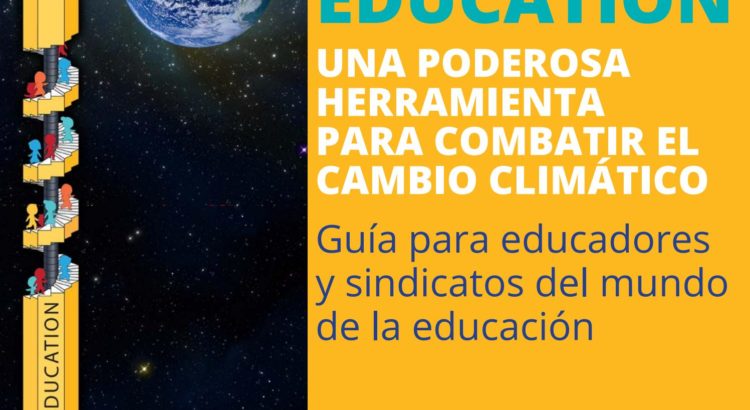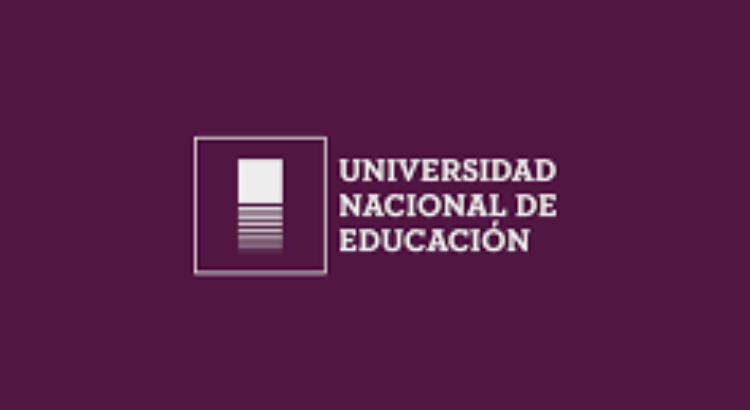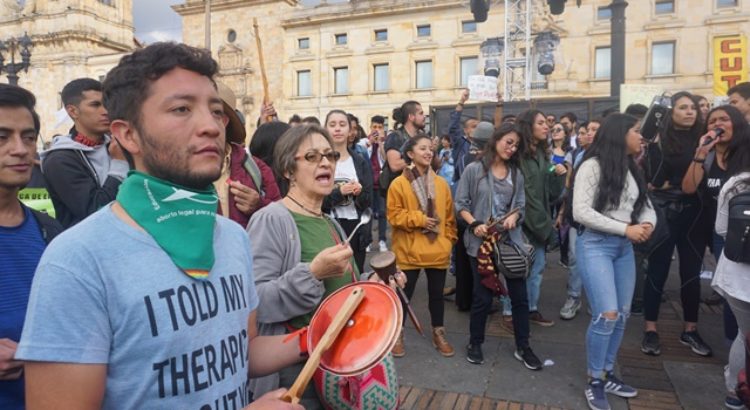UNESCO / 29-12-2019
os Estados Miembros de la UNESCO designaron el primer jueves de noviembre de cada año como Día Internacional contra la Violencia y el Acoso en la Escuela, incluido el Ciberacoso, reconociendo de este modo que la violencia en el entorno escolar bajo todas sus formas atenta contra los derechos de los niños y los adolescentes, la salud y el bienestar. Este Día hace un llamamiento a reforzar las alianzas e iniciativas que aceleran los progresos en aras de la prevención y eliminación de la violencia y el acoso escolar, incluido el ciberacoso.
El conjunto de los 193 Estados Miembros de la UNESCO aprobaron el Día Internacional contra la Violencia y el Acoso en la Escuela, incluido el Ciberacoso, durante la 40a reunión de la Conferencia General de la UNESCO en noviembre, tras la proposición realizada por Francia, México y Marruecos durante la 207ª sesión del Consejo Ejecutivo de la UNESCO.
“Este Día Internacional hace un llamamiento a dar un paso fundamental en la ambición de prevenir y eliminar la violencia y el acoso escolares, incluido el ciberacoso. Sabemos qué funciona; desde el compromiso fuerte y la colaboración sólida entre los socios y las comunidades, hasta la mejora de los datos, la formación de los docentes y los entornos escolares positivos. Es hora de aplicar plenamente estos métodos para que podamos poner fin a la situación devastadora de la violencia escolar”, afirmó Stefania Giannini, Subdirectora General de Educación de la UNESCO.
La propuesta de establecer un día internacional realizada por Francia, México y Marruecos pone de relieve la necesidad de solucionar realmente las causas profundas de la violencia y de promocionar una cultura del respeto de los derechos de los alumnos y la tolerancia cero con respecto a la violencia. Esta propuesta hace un llamamiento a los Estados Miembros, los asociados de las Naciones Unidas, las demás organizaciones internacionales y regionales interesadas, así como a la sociedad civil, incluidas las organizaciones no gubernamentales, las personas y otras partes interesadas para prestar ayuda en la promoción, la organización y la celebración de este día internacional.
La lucha contra la violencia y el acoso escolares es esencial para la consecución de los objetivos de desarrollo sostenible (ODS), en particular el ODS 4, con miras a garantizar una educación de calidad equitativa e inclusiva, y a promover las oportunidades de aprendizaje a lo largo de toda la vida para todos, así como el ODS 16 con miras a promover sociedades pacíficas e inclusivas.
¿Cuán grave puede ser el problema de la violencia y el acoso en el entorno escolar, incluido el ciberacoso?
Según el informe de la UNESCO titulado Behind the numbers: Ending school violence and bullying [Detrás de los números: poner fin a la violencia y el acoso escolares] (en inglés) que expone los datos más recientes y completos sobre estas cuestiones, casi uno de cada tres alumnos ha sido acosado o agredido físicamente por sus compañeros en la escuela al menos una vez durante el último mes. El acoso en línea o a través de los teléfonos móviles ha aumentado también, y los datos demuestran que la mayoría de los alumnos víctimas del ciberacoso han sido acosados en la escuela primero, y que un alto porcentaje de los perjudicados por el acoso han sido víctimas de esta situación tanto en línea como fuera de esta.
Las consecuencias de la violencia y del acoso escolares, fundamentalmente del ciberacoso, son considerables. Los niños y los jóvenes pueden tener sobre todo dificultades de concentración en las clases, faltar a los cursos, evitar las actividades escolares, ausentarse o abandonar completamente la escuela. Esto tiene una repercusión negativa en el rendimiento escolar y en las perspectivas de estudio y empleo en el futuro. Una atmósfera de ansiedad, miedo e inseguridad es incompatible con el aprendizaje y los entornos de aprendizaje no seguros pueden afectar la calidad de la educación de todos los educandos.
Los socios acogen con satisfacción este anuncio
El día internacional es una contribución a Safe to Learn(link is external) (Aprender con seguridad), una campaña mundial de cinco años de duración cuyo objetivo es poner fin a la violencia en las escuelas para que los niños se sientan libres de aprender, progresar y realizar sus sueños. Esta reúne a los socios de las comunidades educativas, de la protección de la infancia y la prevención de la violencia, a la vez que garantiza que los grupos aúnen sus esfuerzos y se apoyen en sus fuerzas respectivas para hacer que las escuelas sean más seguras. La UNESCO es un socio oficial de la campaña Safe to Learn, y miembro de la Alianza Mundial para poner fin a la violencia contra los niños y niñas.
El Dr. Howard Taylor, director ejecutivo de la Alianza para poner fin a la violencia, acogió con satisfacción el Día Internacional contra la Violencia y el Acoso Escolares, incluido el Ciberacoso, como una etapa importante para lograr que todos los niños y niñas aprendan en seguridad. “Si no luchamos contra la violencia en las escuelas – y en línea – anularemos el conjunto de las inversiones realizadas en el sistema educativo. Los niños son los agentes del cambio en el seno de sus escuelas y comunidades, y exigen constantemente una acción más urgente. El día internacional significa una ocasión importante para reunir toda la fuerza de los asociados con miras a llamar la atención sobre estas cuestiones para poner fin a todas las formas de violencia, incluido el ciberacoso en el seno de las escuelas y en línea. Es posible erradicar la violencia contra los niños. Ya es hora de erradicarla.”
“El Foro Mundial de la lucha contra el acoso se complace con el anuncio de la creación de un día internacional que ponga de relieve el derecho de los niños a no padecer el tipo de violencia que engendra el acoso. Al ser el acoso un problema a escala mundial, debemos unirnos para encontrar las soluciones necesarias y abordar este problema en conjunto, algo que el Día Internacional contra la Violencia y el Acoso en la Escuela, incluido el Ciberacoso pretende facilitar”, añadió Magnus Loftsson, presidente del comité científico del Foro Mundial sobre el Acoso Escolar.
- Behind the numbers: Ending school violence and bullying [Detrás de los números: poner fin a la violencia y el acoso escolares] (en inglés)
- Safe to Learn(link is external)
- Labor de la UNESCO contra la violencia y el acoso escolares
El enlace original esta disponible en:
https://es.unesco.org/news/nuevo-dia-internacional-violencia-y-acoso-escuela-incluido-ciberacoso













 Users Today : 14
Users Today : 14 Total Users : 35460367
Total Users : 35460367 Views Today : 19
Views Today : 19 Total views : 3419119
Total views : 3419119